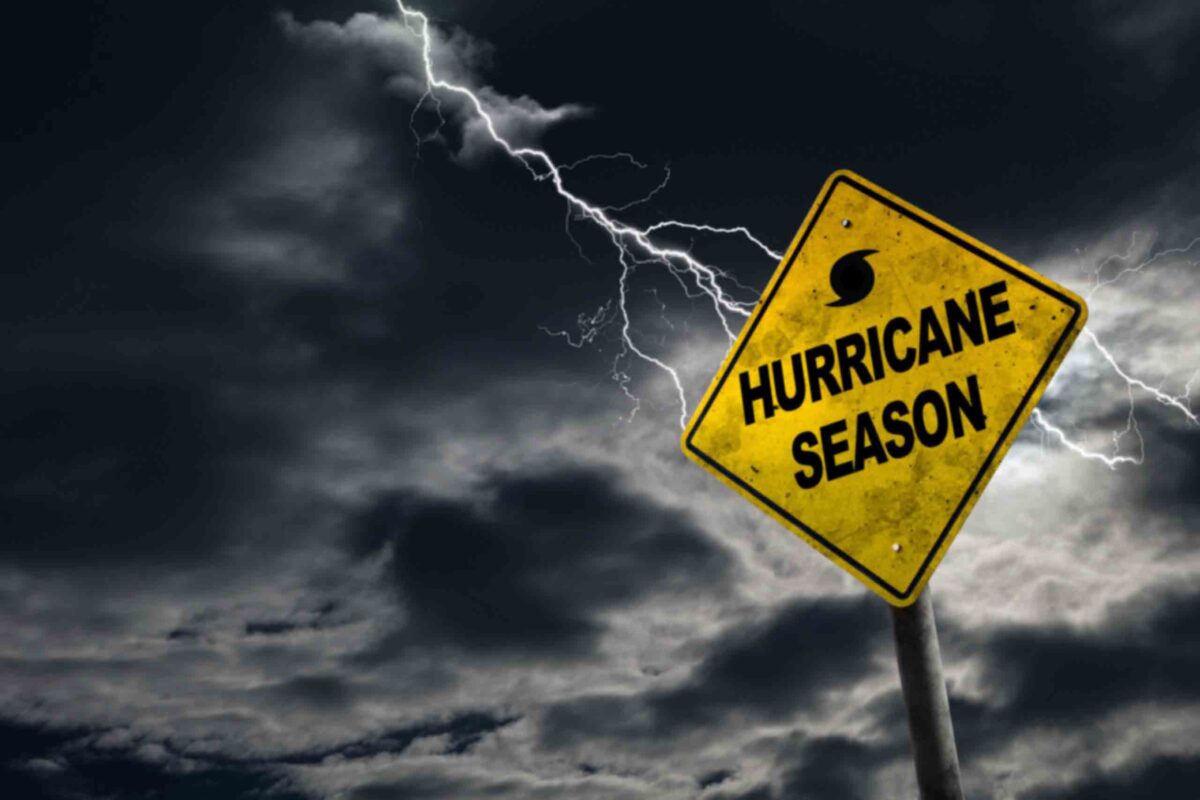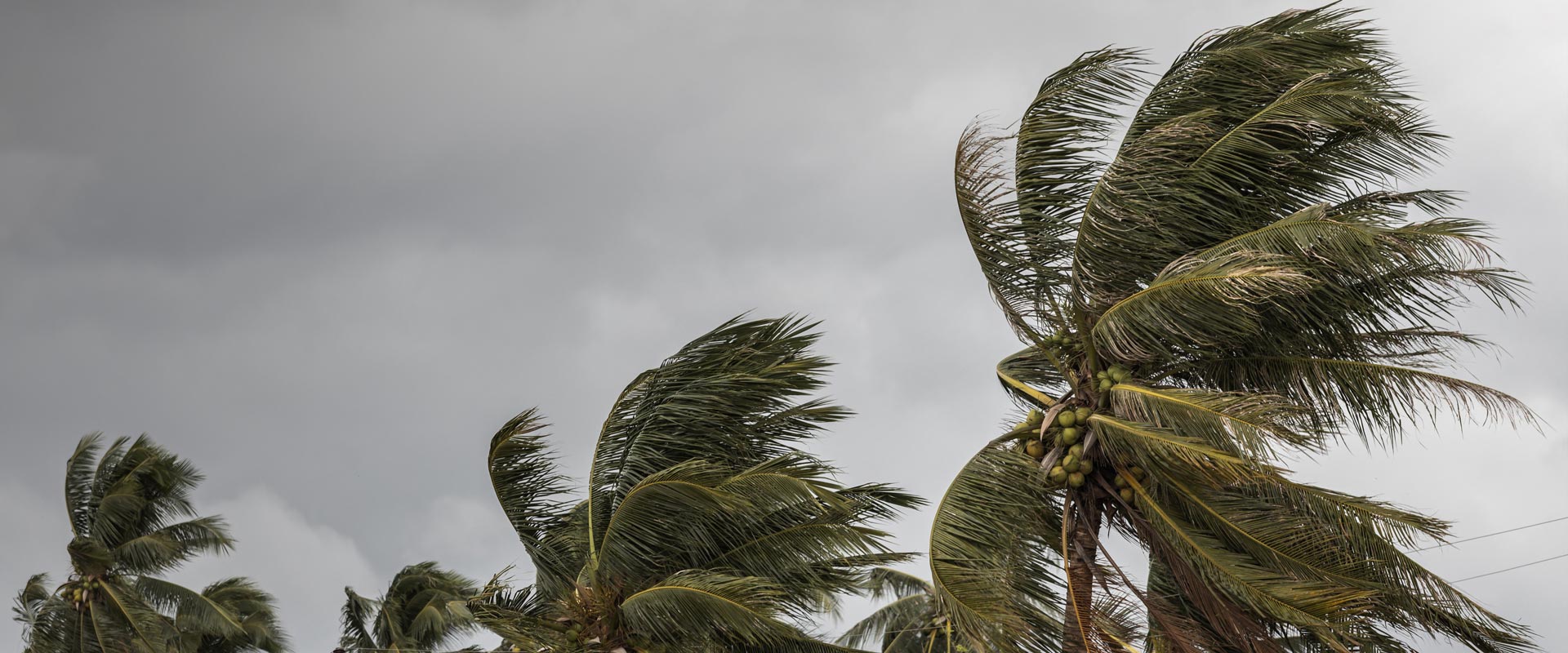Need to Know Info: Yearly Florida Weather Patterns

Florida weather patterns can go from clear, sunny skies to a thunderstorm in minutes. Seasonal weather in Florida has a mind of its own. If you’ve lived in or spent a significant amount of time in the state, there’s a one hundred percent chance you’ve already experienced this.
Unfortunately, seasonal weather in Florida and its diverse climate can majorly impact daily life, tourism, and the economy. But by familiarizing yourself with the typical weather conditions through the seasons of Florida, you can better prepare for and navigate the unique conditions that the Sunshine State experiences.
Florida’s Weather Patterns
Florida is known for its subtropical climate, characterized by warm temperatures, high humidity, and distinct seasonal variations. The state’s geographic location and proximity to the Gulf of Mexico and Atlantic Ocean contribute to its diverse climatic regions.
Although Florida’s climate is generally classified as humid subtropical, the southern part of the state transitions into a tropical climate. This means the state experiences warm, humid summers and mild, dry winters, with occasional periods of heavy rainfall.
It’s important to note that Florida’s diverse geography, including the Florida Keys, the Everglades, and the northern regions, can result in slightly different climatic conditions. Understanding these regional variations can help residents and visitors better prepare for and enjoy the unique weather patterns that make Florida distinctive.
Seasonal Weather in Florida
Spring
Milder temperatures and increased rainfall characterize the Florida weather patterns during springtime. Between March and May, average temperatures in Florida typically range from the low 70s Fahrenheit to the mid-80s. This temperate climate makes it an ideal time to get outdoors.
Summer
Summer seasonal weather in Florida is defined by its intense heat, high humidity, and the potential for severe storms. As the sun beats down relentlessly, temperatures often soar into the 90s Fahrenheit, with heat indices reaching well over 100 degrees. The humidity levels are also exceptionally high during the summer months, and the combination of heat and humidity can pose serious health risks, particularly for vulnerable populations.
But the sweltering conditions aren’t the only issue. Florida’s summer also brings the threat of powerful hurricanes. The Atlantic hurricane season runs from June 1 to November 30, with the peak months being August and September.
Fall
Throughout the fall months, Florida experiences a gradual cooling of temperatures, with average highs dropping from the 80s in September to the mid-70s by November. Overnight lows also decrease, creating more comfortable conditions for outdoor activities. This temperate weather makes fall an ideal time to enjoy Florida’s abundant natural attractions.
However, the fall season in Florida also goes hand-in-hand with an increased risk of hurricane activity. The Atlantic hurricane season peaks between August and October, requiring residents and visitors to monitor weather forecasts closely and be prepared for potential storm systems. Preparedness is key to safely navigating the Florida weather patterns in fall.
Winter
Florida is known for its warm and sunny climate, but the winter brings a unique set of Florida weather patterns. While the temperatures may not dip as low as other parts of the country, Florida does experience some seasonal changes during its chillier months.
During this time, Florida typically enjoys mild temperatures, with average highs in the 70s and 80s Fahrenheit. The winter months also bring lower humidity levels, providing a refreshing break from the muggy summer weather. However, Florida can experience the occasional cold snap, with temperatures dropping into the 50s or even 40s for short periods.
Extreme Weather Events
Hurricanes can have a significant impact on the typical weather conditions through the seasons of Florida, bringing extreme rainfall, high winds, and devastating flooding. The hurricane season in Florida typically runs from June 1st through November 30th, with the peak months being August through October.
Historical data shows that Florida has been impacted by some of the most powerful and destructive hurricanes on record. Storms like Hurricane Andrew in 1992, Hurricane Irma in 2017, and Hurricane Ian in 2022 have caused billions in damage and disrupted the lives of Floridians across the state.
These extreme weather events and seasonal weather in Florida can bring torrential downpours, with some hurricanes dumping over 2 feet of rain. The high winds associated with hurricanes can reach speeds over 150 mph, toppling trees, power lines, and structures. The combination of heavy rain and powerful winds often leads to widespread flooding, which can linger for days or even weeks after a hurricane’s passage.
Weather Preparedness Tips
As a resident or visitor, it’s essential to be informed and prepared for the typical weather conditions through the seasons of Florida. From scorching summers to unpredictable hurricane seasons, understanding the Florida weather patterns in each season can help you stay safe and comfortable.
During the summer months, Florida is known for its intense heat and humidity. Investing in a reliable generator can provide backup power in the event of outages caused by thunderstorms or other weather events. Additionally, keeping emergency supplies on hand, such as water, non-perishable food, and first-aid kits, can ensure you’re ready to weather any storm.
As hurricane season approaches, it’s crucial to stay informed about weather forecasts and heed any evacuation orders issued by local authorities. Creating a detailed emergency plan, including designated meeting spots and communication methods, can help your family or travel group stay connected and coordinated.
By understanding Florida’s weather patterns and taking proactive steps to prepare, you can enjoy the state’s natural beauty while staying safe and informed throughout the year.
There’s No “Typical” Seasonal Weather Conditions in Florida – Stay Prepared and Protected
By staying informed about the typical weather conditions through the seasons of Florida and having the right equipment, such as a high-quality generator, you can ensure that you and your family are prepared to handle whatever Mother Nature throws your way.If you have any questions or need assistance in selecting the perfect generator for your home or business, don’t hesitate to request a quote from our team of experts at Bose Electric. We’re here to help you stay safe and comfortable, no matter the season.




